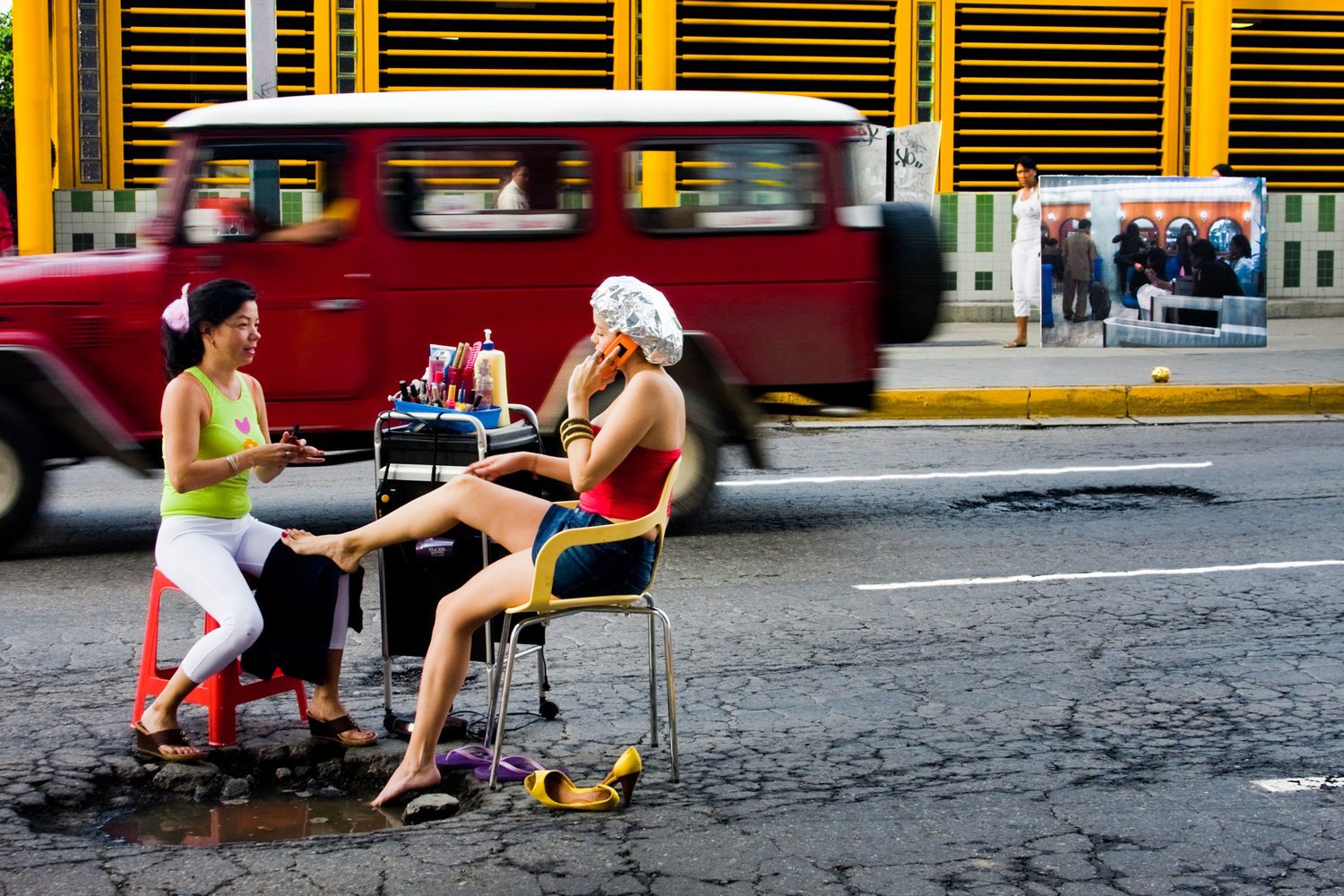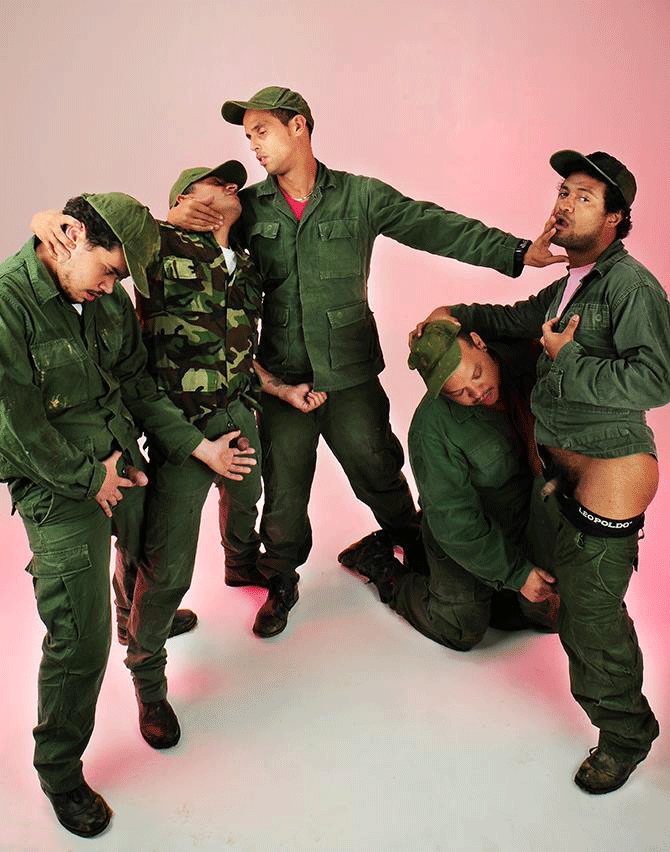













2008-2013
THIS PHOTOGRAPHIC PROJECT FEATURES A SERIES OF STAGED FICTITIOUS SCENES SET IN SOME OF THE URBAN SPACES. WHERE I HAVE LIVED. COMPOSED IN THE TRADITION OF THE TABLEAU VIVANT, THESE DELIRIOUS CITYSCAPES MOBILIZE SATIRE AS BOTH A SURVIVAL TACTIC AND A TOOL TO QUESTION SOCIAL DYNAMICS AND POWER STRUCTURES THAT SUBJECT US TO CORRUPTION, VIOLENCE, AND GREED.

Venezuela is one of the first oil-producing countries in the world. Caracas Emmental ridiculizes and denounces the poor condition of the streets of Caracas. Creating surreal situations in real urban scenarios, proposing the staging on the documentary record. The city and its bystanders are the protagonists of this series.

SHOT IN FRONT OF THE MUSEUM OF CONTEMPORARY ART OF CARACAS, THIS PHOTOGRAPH CAPTURES THE CORRUPTION IN VENEZUELA WHEN IT ENTERED THE INTERNATIONAL ART BLACK MARKET LIST BECAUSE OF THE THEFT OF HENRY MATISSE'S PAINTING, THE ODALISQUE, 1925. IT WAS INITIALLY ACQUIRED BY THE FOUNDER AND FORMER DIRECTOR OF THE MUSEUM SOFÍA IMBER IN 1981 FROM THE PIERRI LEVAI GALLERY, MARLBOROUGH, NEW YORK, FOR 480 THOUSAND DOLLARS. TODAY, ITS VALUE HAS MULTIPLIED SIX TIMES, QUOTED AT ABOUT $ 3 MILLION.

A truck transporting meat suffered a crash on the highway, and people in the surroundings took this opportunity to get their chunk of meat. While the people looted, the driver bled to death. Starvation and survival have become our culture, and the humanitarian crisis that we are living has left us fending for ourselves, cannibalizing if we have to.
https://diariolavoz.net/2013/09/28/gandola-fue-saqueada-mientras-conductor-fallecia/

Establishes cognitive connections between institutional entities, abuse of power, and
sexual repression and its consequences; particularly within the military forces.

In Venezuelans' social collective consciousness, the desire for a “magical state” has nurtured the idea of the “Savior of the Nation” that is incarnated in Hugo Chavez's personality. As a result, what now engulfs the country is the shadow of hunger and the constant manifestations of discontent in the streets of Venezuela.
The characters in Violette Bule´s photograph capture this delirium; you see it in the subjects clinging their bodies to a monolith made of margarine. A dark irony pollutes the atmosphere, symbolizing people’s psyche humiliated by their basic desires. The scene framed between Polar and Solera beer boxes and the eyes of the deceased Venezuelan president Chavez suggests the tension between the two political structures of the nation. The government, represented by the eyes of Chavez, blames the private industry for food scarcity. And on the other hand, the private sector, Empresas Polar blames the government while the citizens are caught in the middle, urging them to buy as much as they can, driven by the certainty of not being able to find what they need. The subjects are lost in their necessity, victims of the false figure of a savior, victimized by their thirst for revenge and idiosyncratic notions of ¨social justice.”